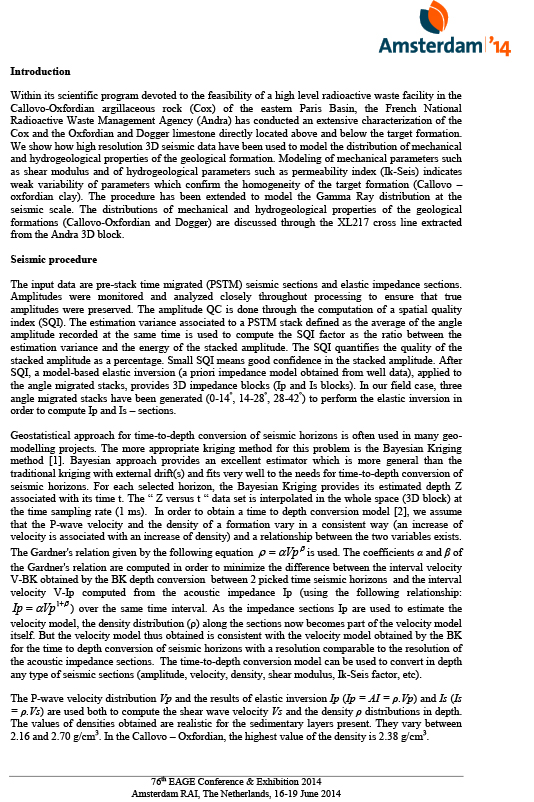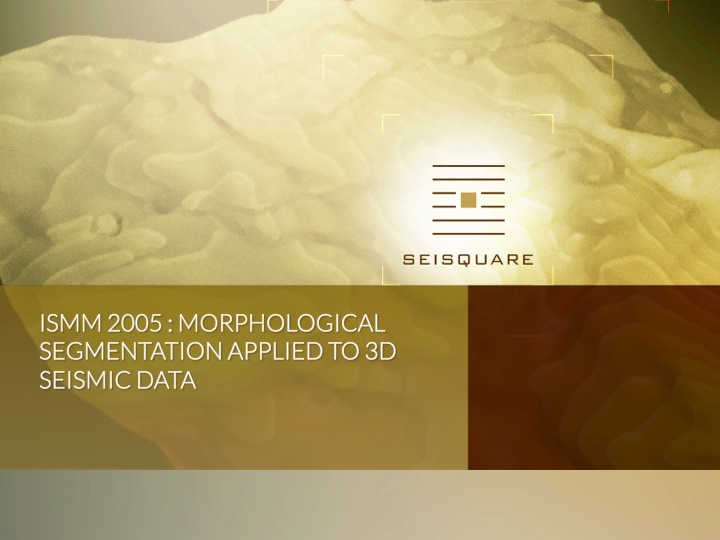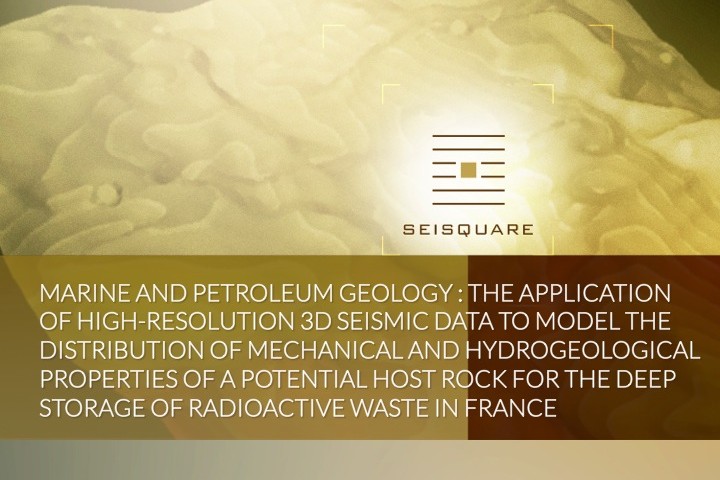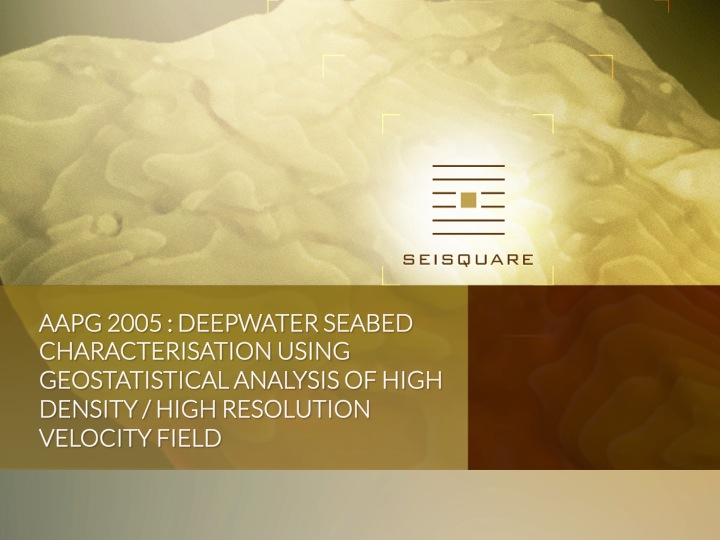In the context of a deep geological repository of high-level radioactive wastes, the French National Radioactive Waste Management Agency (Andra) has conducted an extensive characterization of the Callovo-Oxfordian argillaceous rock and surrounding formations in the Eastern Paris Basin. As part of this project, an accurate 3D seismic derived geological model is needed. The paper shows the procedure used for building the 3D seismic constrained geological model in depth by combining time-to-depth conversion of seismic horizons, consistent seismic velocity model and elastic impedance in time. It also shows how the 3D model is used for mechanical and hydrogeological studies. The 3D seismic field data example illustrates the potential of the proposed depth conversion procedure for estimating density and velocity distributions, which are consistent with the depth conversion of seismic horizons using the Bayesian Kriging method. The geological model shows good agreement with well log data obtained from a reference well, located closest to the 3D seismic survey area. Modeling of the mechanical parameters such as shear modulus, Young modulus, bulk modulus indicates low variability of parameters confirming the homogeneity of the target formation (Callovo- Oxfordia claystone). 3D modeling of a permeability index (Ik-Seis) computed from seismic attributes (instantaneous frequency, envelope, elastic impedance) and validated at the reference well shows promising potential for supporting hydrogeological simulation and decision making related to safety issues.





